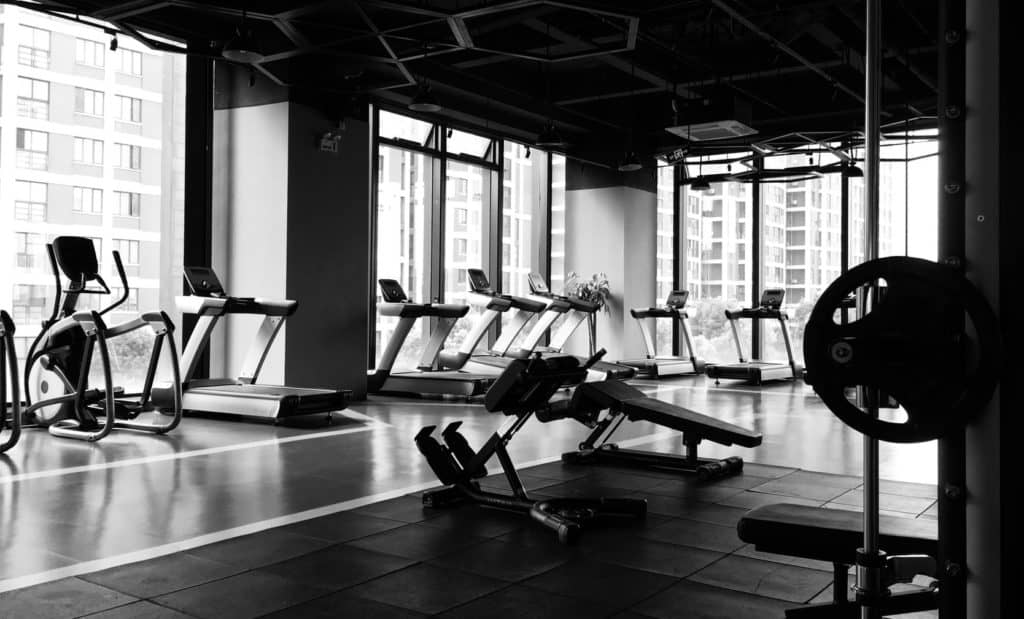
Remember those first few months at the gym?
Better yet, remember when you really started making progress for the first time?
Working out was something you looked forward to every single day. Now, maybe you are a bit more advanced and the gym has come become more routine than it is a source of joy. You still love it, but there are days where you just don’t have it.
People ask me how I got “big arms” or clients ask how I make an exercise technique look so easy. As much as I would like to give them a profound answer, it all stems from consistency in the gym.
Lifting is a skill, just like playing guitar or swinging a golf club. The more you do it, the better you’ll be. If you want to get good at something, you have to do it over and over with proper technique.
So with that being said, how could I fathom much less promote taking a week off?
In the grand scheme of things, a week is a very short period of your life. Taking some time off from anything is neither 100% good nor bad. But based on your specific situation the good may outweigh the bad.
Perhaps you’re forced to take time off from the gym for reasons outside of your control and you’re looking for some rationale to ease your mind.
In any case, there is a time and place for everything. Below are the pros, cons, and myths of taking a week off the gym.
In the right situation, time off from the gym can rejuvenate the body and mind, leading to better muscle growth in the long term. If used improperly however, it can stall progress and set a person back.
Pro: Much Needed Recovery
Certain people may have read the introduction of this article and said “what are you talking about, the gym is still the best part of my day.” These same people likely spend an hour or more in the gym almost every day. And they spend it productively; these aren’t the gym chatty Cathy’s or people texting for 5 minutes between sets.
As alluded to in a previous article, there comes a point where you’ve maximized the anabolic effects of a workout. At this point, the law of diminishing returns kicks in and any workout volume beyond this becomes counterproductive. The sets are wasted, the workout becomes catabolic to a point where recovery is more challenging and the risk of injury is higher.
Over time, this effect may compound and have a negative impact on your physique and workout performance. Short term overreaching can be a good thing, but too much can lead to overtraining.
| Training Type | Traits |
|---|---|
| Overtraining | Performance decrements and impaired recovery so severe that it requires weeks to months off from the gym. Overtraining is rare and people often mistake it for overreaching. |
| Overreaching | A less severe form of overtraining. Symptoms include increased soreness and slowed recovery, even with adequate nutrition and sleep. Short term overreaching can be functional and beneficial to muscle mass and strength. It is sometimes deemed necessary, particularly for advanced lifters. |
| Deload | A systematic decrease in training volume and intensity, but typically not to the extent of multiple days off. Deloading is often programmed into training routines in advance, particularly with powerlifters and strength athletes. |
The easiest remedy is rest. Maybe you don’t need a full week, but an extended period would work. Three to five consecutive days off could be exactly what your body needs. Keep in mind that you don’t have to sit on the couch all day, you could still implement active recovery methods like walking, very light biking, and stretching. Just make sure it doesn’t reach the point of creating too much muscle damage as this would defeat the purpose.
If you’re feeling sore constantly, sleeping poorly, and noticing a marked decrease in workout performance, consider taking some time off.
Pro: Renewed Appreciation For The Gym
Remember that time you landed a job after months of searching and interviewing? Or the time you got your first real job out of college? You worked as hard as you could to make a good impression and show so you can be an asset to the organization. But as time passed and you got more comfortable, the work rate slowed.
This isn’t a knock, it’s just a natural human behavior. As something becomes more routine and comfortable over time, it becomes more ordinary. The gym is no different. We have good workouts and okay workouts. I said many times that the gym becomes a thing that you check off of your to-do list, similar to grocery shopping and laundry. But the gym should not be treated that way, since the effort you put in is directly related to the results you get. The laundry will get done whether you do it slow or fast, but a workout will yield less results if you don’t train hard enough.
Almost everybody can relate to this new appreciation during the pandemic. Gyms were one of the first things to close and one of the last things to open. You may be reading this and reside in an area where the gym is still not open. Think about how much you miss/missed working out during that time period. I guarantee you’re going to go extra hard your first day back.

Con: You May Develop Poor Habits
It takes a long time to build a new habit, and a very short time to break it. Cruel world. This drawback would not apply to someone who treats a workout like brushing their teeth.
In other words, their day would feel wrong if they didn’t work out. For a person who is relatively new to exercise, it is critical that they develop a routine and stick with it. Unless they are forced to, taking extended time off really doesn’t make sense.
According to the European Journal of Social Psychology, it takes an average of 66 days to build a new habit but can be upwards of 254 days for some people. The memes and graphics you see on social media that tout 21 days to build a habit likely don’t apply to you.
That information is actually based on a study which measured how long it took amputees to adjust to life without a limb. That really isn’t a good comparison as it is based on a radical lifestyle change that the individuals have no control over. The brain takes much longer for new habit development in more common cases.
If you are a person that doesn’t enjoy the gym or is using exercise as means to an end, taking extended time off is probably a bad idea. Naturally, you should take a few days off each week to rest your body, but too many consecutive days could ruin the hard work of forming a new productive habit.
Con: You May Not Really Need It
Sometimes you have to just grind through the pain and soreness. This is especially true if you’re training for a specific event, like a race, bodybuilding competition, or MMA fight. These have specific training programs that are designed to peak on competition day. As a result, you can’t just take time off and ruin the flow of the plan.
Even if you’re just training to lose weight, get stronger, or look better, it’s important to be honest with yourself. Do you really need an extended rest or are you just making excuses?
Making excuses goes hand-in-hand with the first negative entry of developing poor habits. It’s a vicious cycle that could ruin your progress. No matter whom you ask that may tell you what you want to hear, only you truly know whether you need a week off.
Myth: You’ll Lose Muscle
Protein synthesis is the process that leads to the the building of new muscle. The two ways of increasing protein synthesis are by resistance training or consuming a meal with sufficient, high-quality protein.
Some may be concerned that taking a week off of the gym will lead to the loss of muscle tissue.
Muscle tissue is very dense, it doesn’t just disappear. It is highly unlikely that you will lose sufficient muscle mass in just a week. The reason some people feel that they lose muscle in a dieting phase is not because they’re losing muscle tissue itself, it’s that the water content of the muscle is lower than usual. This is typically due to a reduction in carbohydrate consumption, as carbohydrates drive water into the muscle.
Similarly, an individual may feel they’re losing muscle during time off since the muscles are not inflamed from a workout nor is there expanded blood flow from resistance training (a.k.a the pump).
Recently my gym opened for personal training post lockdown and I began seeing clients that I hadn’t seen in about four months. Virtually all of them asked how long it would take to get their pre-lockdown body back. I told them about two to four weeks of consistent training.
Deep down I knew they didn’t believe me. But lo and behold two weeks later they were glowing about how great they felt and looked.
If you googled this article I would venture to say that you’re looking for peace of mind about taking time off rather than an excuse. I hope this settled your fears a bit.
As mentioned earlier consistency is key, but sometimes it’s important to look at the long-term even if it means sacrificing a little in the short-term. If taking a week off the gym means that you have more productive workouts for the next 6 months, it was certainly worth it.
